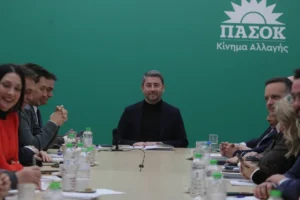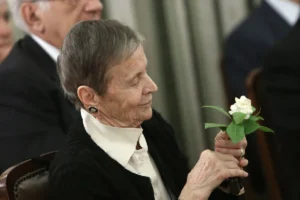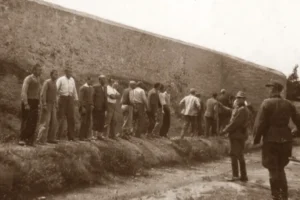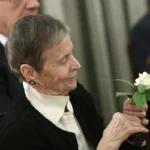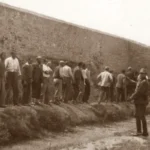48-hour extension granted for testimonies.
Tense scenes unfolded yesterday afternoon at the Chania Courthouse, as the first defendants in the major criminal case that has shaken Crete were brought before the authorities.
According to police, the sprawling network was involved in drug trafficking, extortion, bomb attacks, and money laundering through luxury hotels and beach bars.
A total of 48 suspects were escorted to prosecutors and investigating judges in groups of eight. They requested – and were granted – a 48-hour extension to prepare their depositions. The process will continue until Friday, focusing primarily on 30 key individuals.
Protests and insults at the courthouse
Many suspects shouted that the case was “just another fabricated criminal organization,” with jeers and insults directed at the police escorting them. Outside the courthouse, dozens of relatives and friends had gathered in support, chanting slogans and denouncing the arrests as a “setup.”
Millions in illicit revenue
The police case file reveals that the organization’s turnover reached €3 million:
- €1.1 million from drug trafficking.
- €1.5 million from “front” businesses, notably hotels and beach bars.
Authorities believe that most of the profits flowed into the hands of two brothers – prominent local businessmen – identified as the ringleaders.
Luxury as a cover for crime
The group’s lavish lifestyle was on full display at their luxury resort outside Chania:
- A two-meter-high perimeter fence.
- An internal bridge connecting the facilities.
- A statue of Poseidon dominating the poolside.
Police searches uncovered assault weapons, ammunition, narcotics, mobile phones, and large sums of cash.
Real estate, the Church, and undercover officers
A particularly striking discovery was a cache of signed declarations and authorizations found at the alleged leader’s residence. Investigators suspect these were used to acquire church-owned land at bargain prices, later resold for hefty profits or exploited directly by the network. Wiretaps further revealed attempts to influence the appointment of the new Bishop of Chania by lobbying for a candidate favorable to the group.
The case was cracked open thanks to two undercover police officers who infiltrated the organization last June, posing as restaurant employees. Approved by the Chania prosecutor’s office, this method was applied in Crete for the first time and proved decisive in mapping the network’s hierarchy.
As the judicial process unfolds, the upcoming depositions are expected to shed further light on a mafia-style structure that, according to police, had extended its tentacles into business, society, and even the Church.





